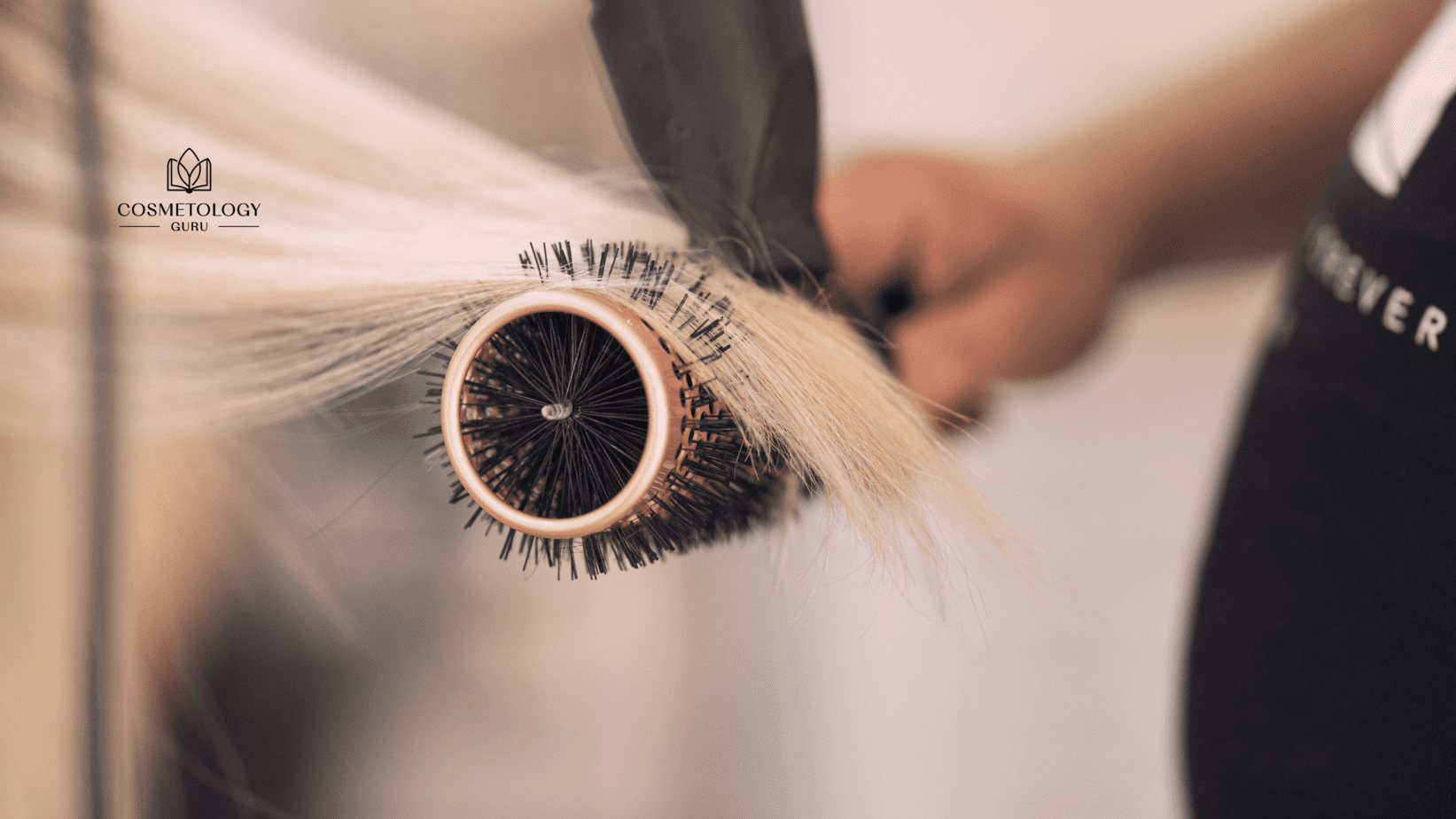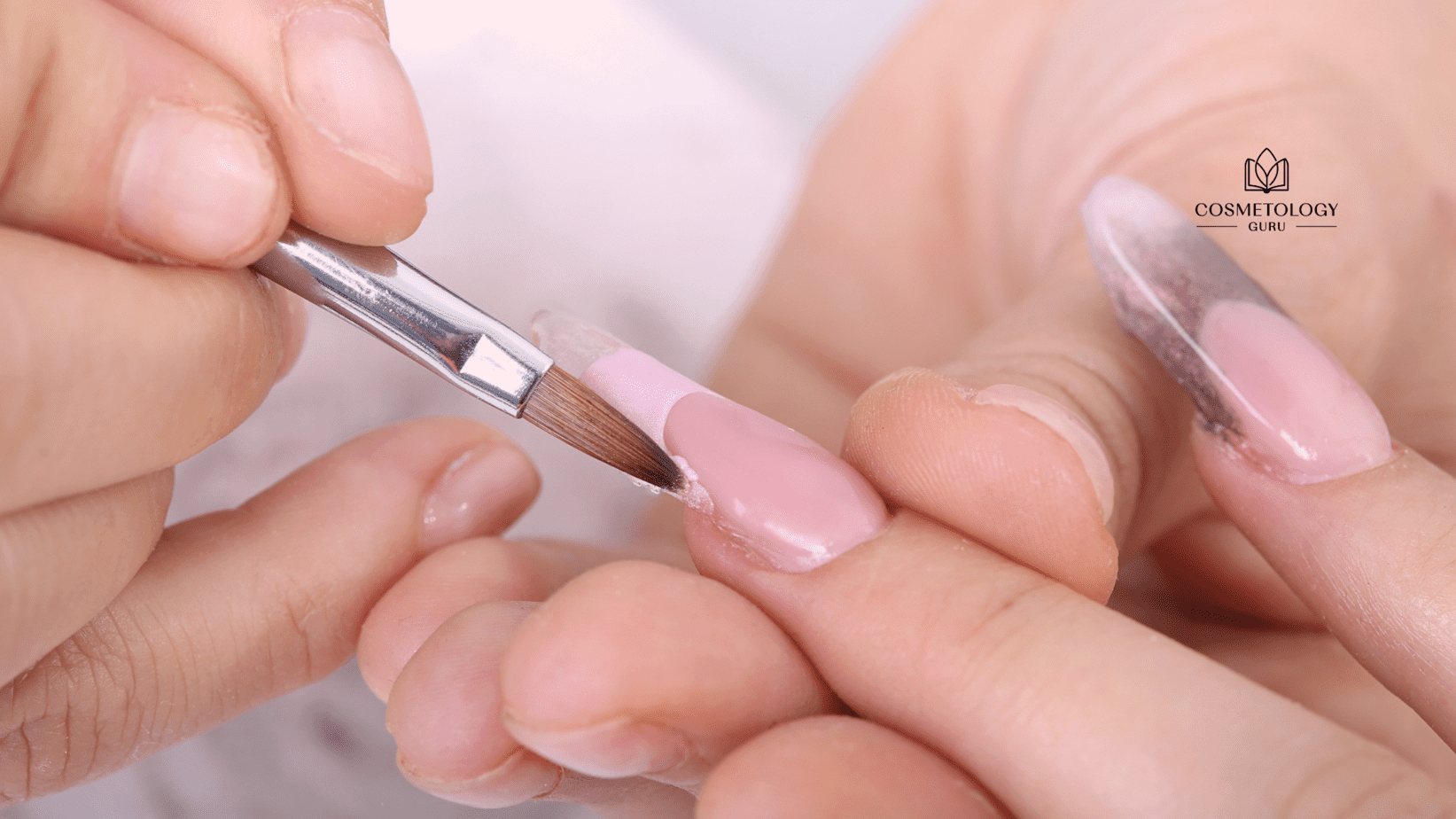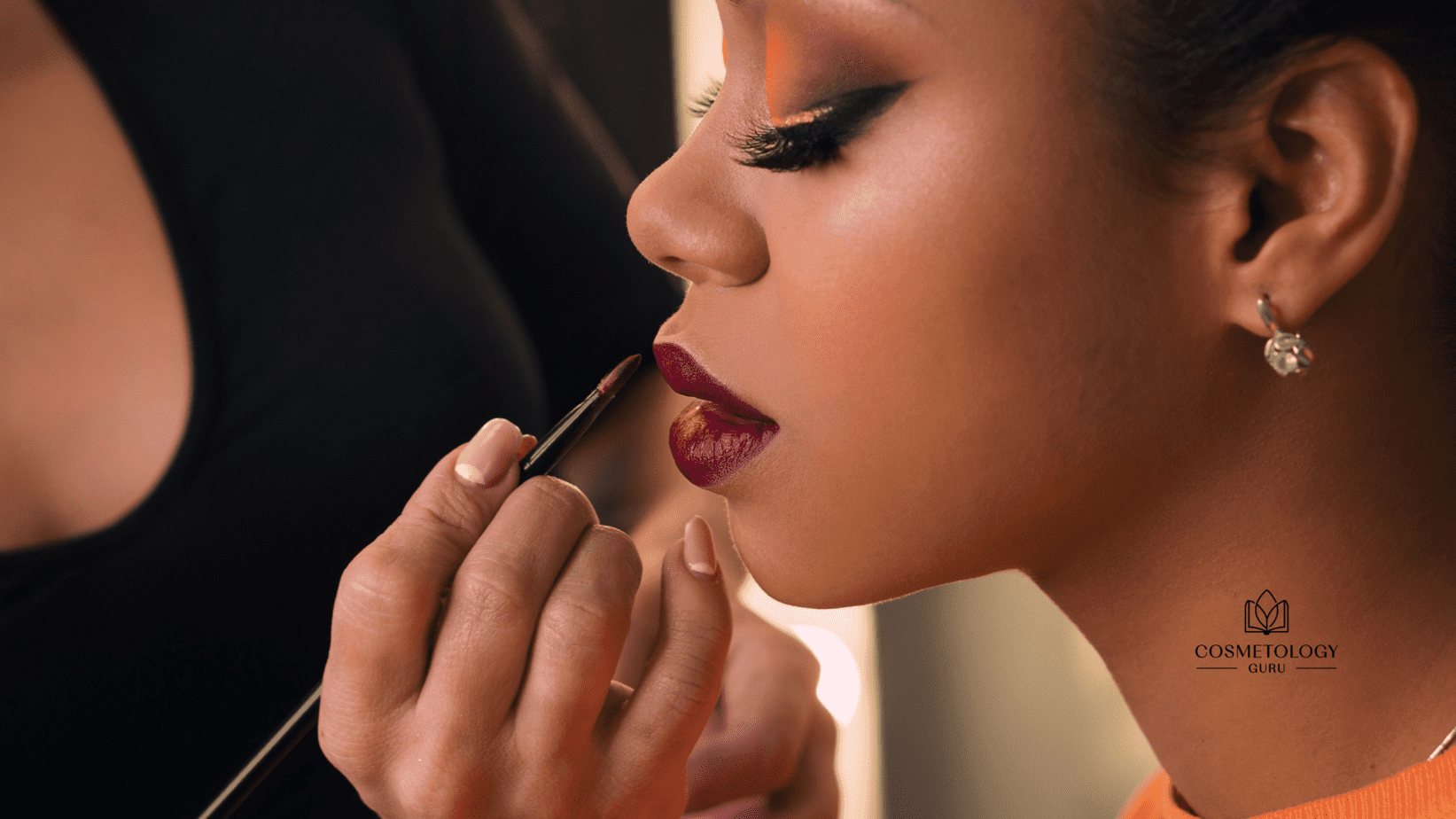Sponsored
The world of cosmetology is exciting; how other careers allow you to make people both look good and feel amazing?
Whether you’re already qualified, or just thinking about becoming a cosmetologist, you might be wondering, “What happens if I get pregnant?”
In the world of cosmetology, handling chemicals is normal, but is it dangerous for your baby? What about long hours spent on your feet? Are there ways to minimize potential dangers, or should pregnant women avoid working in cosmetology altogether?
Having a baby is a huge life event and it’s natural to worry. But for most pregnant moms-to-be, just quitting work when they see that positive pregnancy test just isn’t possible.
But there’s no need to fear, because staying safe while pregnant and working as a cosmetologist is possible. You just need adequate protection from chemicals, a well-ventilated work space, and longer or more frequent breaks.
So, before we either panic or throw caution to the wind, let’s have a look at the facts and discuss what you need to know in order to stay safe:
What do scientists say about practicing cosmetology when pregnant?
Although many studies into the dangers of practicing cosmetology when pregnant have been undertaken, the results have proven inconclusive.
Some studies have linked careers in cosmetology with pregnancy risks like low birth weight, reduced fecal size, preterm labor, and even an increased risk of miscarriage.
One study from the University of Birmingham noted that cosmetologists are “commonly exposed to chemicals, poor posture and psychological stress that may increase the risk of adverse pregnancy outcomes.”
However, it is unclear whether the risks recorded in this study, and others like it, are definitely associated with practicing cosmetology, or whether other factors, like the mother’s nutrition, potential drink/drug abuse, or a lack of prenatal care, contributed to the issues the participants experienced.
When we look specifically at the chemicals used in cosmetology, the results are even more confusing. One study, completed in 2002 found that chemicals found in hair products, shampoos, permanent wave solutions, hair dyes, and hair spray could be toxic to fetuses.
But to add even more uncertainty, other studies have actually found that the risks associated with exposure to chemicals used in cosmetology are minimal.
In fact, whilst testing on pregnant animals, researchers found that chemicals used in cosmetology were not harmful to fetuses, even in quantities that were dangerous to the mother herself.
What should we do with the evidence?
Because the results of scientific studies are inconclusive, it is best to proceed with caution. Pregnant women should wear gloves when handling chemicals and ensure that their work space is well-ventilated.
Because there are concerns over the possible negative effects of both stress and standing for long periods of time, regular breaks should be taken whenever possible.
This means that cosmetologists should sit down and relax at regular intervals to allow their bodies and minds to rest whilst they grow that baby.
Whilst this advice is useful, there is a difference between working in a beauty salon, hairdressers, or nail salon. So, let’s look at each career separately:
Is it safe to be a hairdresser when pregnant?

If you work as a hairdresser, you probably handle chemicals regularly and spend much of your day on your feet.
This can be a worry, but as we have seen, the results of research into the safety of working as a hairdresser whilst pregnant are mixed.
Based on the available data, it appears that caution around chemicals is, of course, advised. However, as long as your workplace is well-ventilated and you are wearing gloves, you should be able to continue perming, relaxing, and dying hair as normal.
What you may wish to consider more is the number of hours spent on your feet. Ideally, you should take a break and sit down once every 2-3 hours.
Be sure to consult your OB/GYN for advice as soon as you discover your pregnancy, and don’t be afraid to ask for further guidance if you experience any pain or discomfort.
If you do find standing painful as your pregnancy progresses, it may be worth considering using a stool. This can help ease backache and the pain of swollen ankles.
When should a pregnant hairdresser stop work?
When to stop work is a personal decision and the right time to stop is different for each woman (and each pregnancy!). Whilst some women are able to work up until their due date, others will find standing for long periods of time difficult.
Ideally, you should plan to stop working when doing so becomes too difficult, whenever this may be. However, if your circumstances prevent you from stopping as soon as you’d like, try to take extra breaks during the day.
However, you should stop working if you experience difficulties in your pregnancy, and are advised that it is unsafe to continue by your OB/GYN.
Working in a beauty salon while pregnant
Of all the cosmetology professions, working in a beauty salon tends to come with the least exposure to chemicals.
Related Read: What’s the difference between a cosmetologist and an esthetician?
However, the essential oils used in some procedures can be just as concerning for moms-to-be. If you use essential oils as part of the treatments you offer to clients, you are probably aware that there are concerns over whether some oils pose a danger to pregnant women.
Whilst no conclusive evidence has been found to link the use of essential oils with pregnancy complications, caution is still advisable.
To guard against prolonged exposure, it may be best to use gloves and to work in a well-ventilated space whilst handling oils, and extra care should be taken to avoid skin contact within the first trimester.
Like hairdressers, people working in beauty salons often stand for long periods of time. It is therefore important to take regular breaks and to use a stool if standing is proving painful.
It is important to remember to consult your OB/GYN for advice about your pregnancy as soon as possible, and to return to the doctor’s office if you experience any pain or discomfort at work.
When should a pregnant beautician stop work?
Again, this will be different for every woman, and for every pregnancy. You are fine to continue working whilst ever you feel able, but do take your OB/GYN’s advice into consideration.
Working in a nail salon while pregnant

Like hairdressers, nail technicians come into regular contact with chemicals during their working day. It is therefore important to ensure that your workplace is well-ventilated and that you use gloves when appropriate.
Many pregnant women find that strong smells, like those found in the nail salon, can trigger nausea. This is not dangerous, but it is unpleasant.
To combat sickness, take the time to step out of the salon for fresh air. You may also wish to keep home remedies, such as ginger tea (or whatever works for you!), at your workplace.
Whilst nail technicians often spend less time on their feet than hairdressers and people working in beauty salons, you should still ensure that you take regular breaks throughout your pregnancy.
As always, it is important to discuss your pregnancy with your OB/GYN and you should report any pain or discomfort you experience to your doctor.
When should a pregnant nail technician stop work?
You guessed it, you can continue to work for as long as you feel able. Again, just remember to take your OB/GYN’s advice, and take extra breaks whenever you can. Taking breaks outdoors might be especially helpful for those working in a nail salon.
Can you do cosmetology school while pregnant?

It is usually possible to attend cosmetology school whilst pregnant, however, it is a good idea to discuss your plans with the school’s administrators before enrolling.
Whilst the advice for handling chemicals and taking regular breaks remains the same regardless of whether you are training or working as a qualified hairdresser, beautician, or nail technician, there are some practical considerations you should be aware of if you are considering cosmetology school.
Related Read: Should You Do a Cosmetology Apprenticeship Instead of Going to Beauty School?
Cosmetology courses typically last between 3 to 15 months (depending on which state you are in, and which program you choose). And because they are relatively short, taking pregnancy-related absence can be a real issue for your studies.
Some schools will allow students to take medical leaves of absence, picking up their studies on their return. However, some cosmetology schools do not offer such flexibility, and may even charge for missed days.
Again, always remember to consult your OB/GYN when you discover that you are pregnant, and be sure to ask for medical advice if you experience any pain or discomfort related to your course.
Already enrolled? Take our free cosmetology practice test to see how you’ll do on your state board exams!
Final thoughts
Being pregnant is hard, not only physically, but mentally too. We all want what’s best for our children, but we also need to make money.
And when the official guidelines over what is and isn’t dangerous for pregnant women is less than conclusive, it can make our job even harder.
But bear in mind, as long as you are sensible when handling potentially dangerous substances, and take regular breaks to prevent overexerting yourself, the likelihood is that you will be just fine.
It is important to remember that, unfortunately, pregnancy complications do happen. However, most hairdressers, nail technicians, and women working in beauty salons do have normal, healthy pregnancies.


